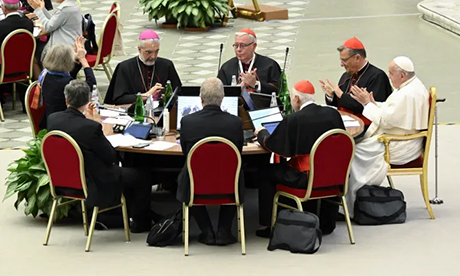At the conclusion of the Synod on Synodality, Cardinal Jean-Claude Hollerich emphasised the transformative potential of the openness and freedom experienced during the gathering.
The Synod witnessed vigorous debates during small-group discussions. However Hollerich, a key figure in the month-long Vatican assembly, highlighted that even in the face of disagreements alternative solutions were found.
“To have this freedom and openness will change the Church” he said, “and I’m sure the Church will find answers, but perhaps not the exact answer this group or that group wants to have, but answers [with which] most people could feel well and listened to.”
Cardinal Hollerich noted that the genuine process begins after the entire synod concludes, with expectations of a comprehensive document addressing theological aspects of synodality in the following year.
Hollerich emphasised that the document represents just a step in the Church’s evolving journey.
Furthermore, the archbishop of Luxembourg underscored the synod’s primary focus on synodality, stating that certain topics hold significance for some individuals, even if they weren’t explicitly addressed in the synthesis report.
“And I think a synodal Church will more easily try to speak about these topics than the Church as it was structured in the past” he said.
“That’s not to say that a synodal Church will just embrace everything,” he added.
Happy with the result
Regarding the fact that some contentious issues in the assembly’s report received opposition, Cardinal Mario Grech, the secretary general of the Synod of Bishops, said “There are points in which we agree and points in which there is still a way to go.”
Hollerich commented: “It was clear to me that some topics would have resistance. I am full of wonder that so many people have voted in favour. That means that the resistance [was] not so great as people have thought before. So yes, I am happy with that result.”
One notable point in the report was the consideration of women deacons, which received 277 votes in favour and 69 against.
Grech said, “This is the approach of Jesus, to create spaces for everyone so that no one feels excluded” he added. “Today, there was a tremendous joy that you could see with your own eyes.”
“I think” Hollerich said, “people will leave tomorrow or the day after tomorrow going home with a heart full of hope, with a lot of ideas and I’m looking forward to seeing them back next year.”
